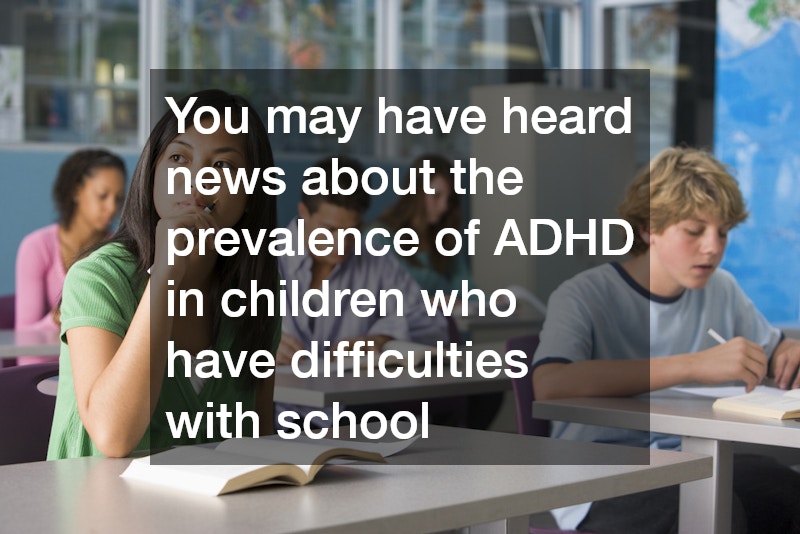
You may have heard news about the prevalence of ADHD in children who have difficulties with school. However, adults can also be significantly affected by ADHD. Adults with ADHD may find it difficult to pay attention and may struggle with relationships or time management.
If your doctor believes you have adult ADHD, they can help you find assistance through local and government programs. For example, they might connect you with an ADHD coach. These coaches use techniques like Cognitive Behavioral Training and are familiar with resources specifically for adults with ADHD. They can also help you locate programs that provide skills training tailored to adult needs.
When searching for programs, focus on those designed for adults. While these coaches are not medical doctors, they often work alongside your healthcare provider. After a few months of behavioral therapy, they may suggest an ADHD medication test to determine if medication could help improve your daily functioning.
Additionally, consider exploring support groups, which can offer a valuable network of individuals who share similar experiences. These communities can provide understanding, encouragement, and practical advice, helping you navigate the challenges of living with ADHD more effectively. Connecting with others who understand your struggles can make a significant difference in your journey toward managing ADHD.
Attention Deficit Disorder (ADD) and Attention Deficit Hyperactivity Disorder (ADHD) are two of the most common types of mental disorder diagnosed. Most often diagnosed in children and teenagers, they can also affect adults of both sexes and make it difficult for individuals to negotiate the demands of daily life at home, school, and work. ADHD in children is most often diagnosed at school, and adult add assessments may be necessary for someone who has trouble with tasks like holding down a job, getting organized, and setting goals. There are several different methods of treating ADHD. Under the Americans with Disabilities Act, ADHD accommodations ensure that children and adults have an equal opportunity for education and employment.
What is ADHD?
ADD and ADHD are very commonly-occurring mental disorders that make it difficult for a person to concentrate, or cause them to engage in hyperactivity and impulsive behaviors. They are most often diagnosed in children, through ADHD testing in schools. Around 6.4 million school children in the U.S., between the ages of four and 17, are estimated to have ADHD. For children, the average age at which moderate ADHD is diagnosed is seven years.
Around 13.2% of all boys are likely to be diagnosed with ADHD. This about three times the rate for girls, whose likelihood of a positive diagnosis in ADHD testing is 5.6%. Adults who test positive through adult add assessments have suffered from the disorder from childhood, though it may not have been diagnosed. In many cases, childhood ADHD and ADD testing results may be ignored by parents, who believe that the kids will just outgrow the symptoms.
How is ADHD treated?
Adult ADD assessments can show that these individuals are likely to suffer a range of behavioral and emotional problems, including addiction, trouble forming relationships, and low self esteem. They are also three times more likely to suffer from emotional problems like depression, stress, and anxiety. This may cause them to miss work and limit their social lives.
Treatment for ADHD can include medication, counseling, and behavioral therapy. Treatment must be personalized, since each case is unique. Counseling focuses on strategies to mange daily life, and ways to bring it under control. Cognitive behavioral therapy helps individuals to learn how to manage their time through the use of planners and calendars, how to set short term and long term goals, deal with stress and other emotions, and to assess actions before carrying them out in order to control impulsive behavior.
What are ADHD accommodations?
The Americans with Disabilities Act provides for special accommodations for those suffering from mental or physical disorders so they may have equal access to educational and employment opportunities. Standardized tests for educational and employment purposes can be both high-stakes and stressful, making special accommodations necessary for those suffering from ADHD. Such tests can include high school tests like ACT and SAT, graduate school tests like GRE, LSAT and MCAT, and professional licensing tests like bar and medical school exams.
For example, standardized testing accommodations like ACT accommodations or MCAT accommodations may include extended time and distraction-free rooms.
School or adult add assessments help in the diagnosis of attention deficit disorders like ADD and ADHD. These disorders are very common, and affect the individual’s ability to handle everyday tasks at home, work, and school. Treatment can include different methods like medication, counseling and therapy. Special accommodations for standardized educational and employment tests can give individuals with the disorder an equal opportunity to demonstrate their skills and talent.
